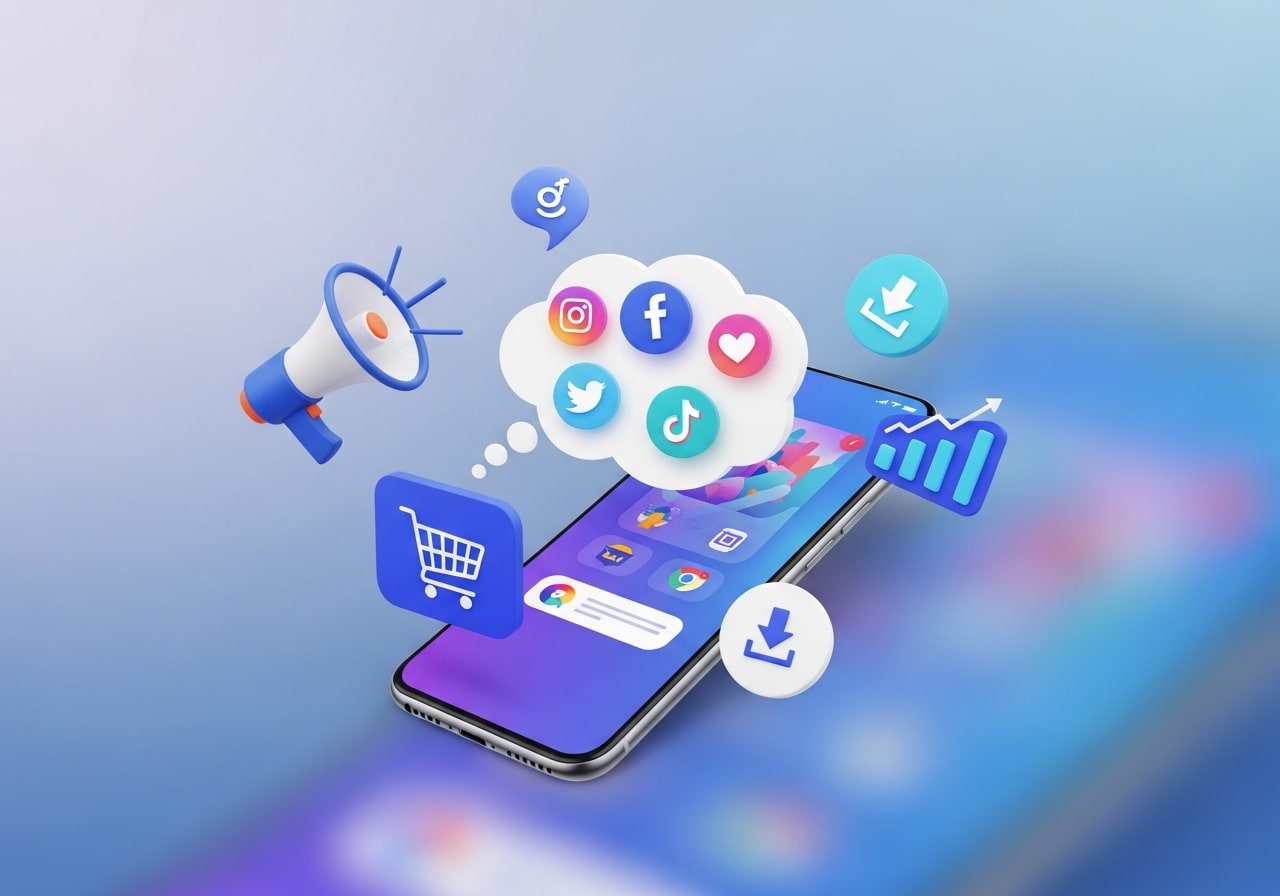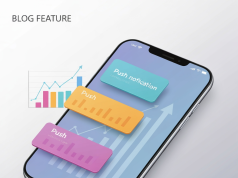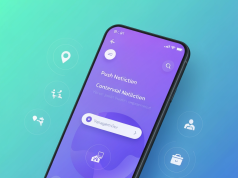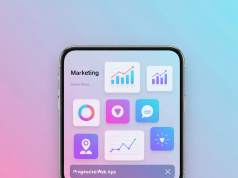Mobile app marketing has evolved dramatically as digital natives mature and new generations enter the smartphone ecosystem. Understanding how to reach Gen Z and Millennials effectively can make or break your app’s success.
Understanding Your Mobile Audience: Gen Z vs Millennials
Who Are We Talking About?
Millennials (born 1981-1996) are now aged 28-43. They witnessed the birth of smartphones, social media, and app stores. This generation experienced the transition from desktop to mobile computing during their formative years.
Gen Z (born 1997-2012) is currently aged 12-27. They’ve never known a world without smartphones, social media, or apps. For them, mobile-first isn’t a strategy—it’s simply how the world works.
Mobile Usage Patterns
Millennials spend an average of 3.7 hours daily on mobile devices, while Gen Z clocks in at 4.5 hours. However, raw screen time only tells part of the story. The way each generation uses their devices reveals crucial insights for mobile app marketing.
Millennials often use their phones as productivity tools. They check email, manage calendars, and use apps to solve specific problems. Their app usage tends to be more intentional and goal-oriented.
Gen Z treats smartphones as entertainment hubs and social connection centers. They’re more likely to discover apps through peer recommendations, influencer content, and viral moments. Their app usage is often spontaneous and exploratory.
Mobile App Marketing Strategies for Millennials

Focus on Value and Efficiency
Millennials grew up during economic uncertainty. They value apps that save time, money, or effort. Your mobile app marketing should emphasize practical benefits and return on investment.
Successful Millennial-focused campaigns highlight:
- Problem-solving capabilities
- Time-saving features
- Cost-effectiveness
- Professional development opportunities
- Health and wellness benefits
Leverage Email and Facebook

While younger generations have moved away from Facebook, Millennials still actively use the platform. Email marketing remains highly effective for this group, with 73% of Millennials preferring email communication from brands.
Your mobile app marketing mix should include:
- Targeted Facebook ad campaigns
- Email sequences with app download incentives
- LinkedIn advertising for professional apps
- Pinterest marketing for lifestyle and shopping apps
Emphasize Reviews and Ratings
Millennials research extensively before downloading apps. They read reviews, compare ratings, and seek recommendations from trusted sources. This generation values peer feedback and expert opinions.
Optimize your app store presence by:
- Actively managing app store reviews
- Encouraging satisfied users to leave ratings
- Responding professionally to negative feedback
- Showcasing positive reviews in marketing materials
Content Marketing That Educates
Millennials appreciate detailed information and educational content. Blog posts, tutorials, and how-to guides perform well with this audience. They want to understand exactly how your app will benefit them before downloading.
Create content that:
- Explains your app’s unique value proposition
- Provides step-by-step tutorials
- Shares case studies and success stories
- Offers industry insights and trends
Leveraging Data Analytics for Generational Insights

Data-driven marketing is essential for understanding how Millennials and Gen Z engage with mobile apps. By analyzing in-app behavior, session durations, retention patterns, and conversion rates, marketers can uncover actionable insights about user preferences. Generational segmentation allows for personalized campaigns, ensuring messaging resonates with each audience. Tools like cohort analysis and funnel tracking highlight which features drive engagement and which lead to drop-offs. Marketers can then optimize onboarding, push notifications, and content strategies based on real-world data. Ultimately, analytics helps brands allocate resources effectively, improve user experiences, and maximize ROI across multi-generational campaigns.
Creating Inclusive and Accessible App Experiences
Inclusive design is critical for attracting and retaining diverse users across generations. Millennials and Gen Z expect apps to be accessible, intuitive, and accommodating to various abilities. Features like screen reader compatibility, adjustable text sizes, color contrast options, and voice commands improve usability for all users. Accessibility not only broadens your potential audience but also strengthens brand reputation and trust. Designing with inclusivity in mind demonstrates social responsibility and aligns with younger generations’ values. By prioritizing accessibility, marketers can create a user-friendly app experience that reduces friction, increases engagement, and encourages long-term loyalty across different age groups and demographic segments.
Leveraging Emerging Technologies in Mobile Marketing
Emerging technologies like augmented reality (AR), virtual reality (VR), and AI-powered personalization are transforming mobile app marketing. Gen Z, in particular, responds strongly to immersive and interactive experiences, while Millennials appreciate intelligent automation that saves time. AR filters, VR previews, AI chatbots, and personalized content recommendations enhance engagement and create memorable brand interactions. Marketers can use these technologies to gamify app experiences, offer real-time support, and deliver highly relevant content. Integrating emerging tech keeps campaigns innovative, differentiates the app from competitors, and appeals to tech-savvy audiences. Early adoption also allows brands to establish thought leadership in a rapidly evolving mobile landscape.
Mobile App Marketing Strategies for Gen Z
Prioritize Visual and Video Content
Gen Z processes information differently from previous generations. They prefer visual content, with 85% watching video content daily. Your mobile app marketing must be visually striking and immediately engaging.
Effective Gen Z marketing includes:
- Short-form video content (TikTok, Instagram Reels)
- Interactive social media stories
- Visually appealing app screenshots and graphics
- Animated explainer videos under 60 seconds
Embrace Authenticity and Transparency
Gen Z has grown up with constant marketing messages. They’ve developed sophisticated filters for detecting inauthentic content. Your mobile app marketing must feel genuine and transparent.
Successful approaches include:
- User-generated content campaigns
- Behind-the-scenes content
- Honest communication about app limitations
- Real user testimonials and reviews
Utilize Influencer Partnerships
Micro-influencers and nano-influencers carry significant weight with Gen Z. They trust recommendations from creators they follow more than traditional advertising. Influencer partnerships can dramatically boost app downloads among this generation.
Consider partnering with:
- Micro-influencers (1,000-100,000 followers)
- Nano-influencers (under 1,000 followers)
- Industry-specific creators
- Peer-to-peer advocates
Gamification and Interactive Elements
Gen Z expects interactive experiences. They’re drawn to apps that incorporate gaming elements, challenges, and social features. Your marketing should reflect this preference for engagement and interaction.
Highlight features like:
- Achievement systems and badges
- Social sharing capabilities
- Challenges and competitions
- Customization options
- Community features
Platform-Specific Mobile App Marketing Approaches

TikTok Marketing
TikTok skews heavily toward Gen Z, making it essential for reaching younger audiences. The platform’s algorithm rewards creativity and authenticity over polished production values.
TikTok strategies include:
- Trending hashtag participation
- Behind-the-scenes app development content
- User-generated content challenges
- Collaborations with TikTok creators
Instagram Marketing
Instagram serves both generations but requires different approaches. Millennials engage more with Instagram Stories and IGTV, while Gen Z prefers Reels and interactive features.
Instagram tactics:
- Stories with swipe-up links (for verified accounts)
- Reels showcasing app features
- Instagram Shopping integration
- Live streaming for product launches
Snapchat Marketing
Snapchat remains popular with Gen Z and younger Millennials. The platform’s AR features and disappearing content format align with Gen Z’s preferences for ephemeral, creative communication.
Snapchat opportunities:
- Sponsored lenses and filters
- Snap Ads with app install objectives
- Story placements
- Influencer partnerships
Cross-Generational Mobile App Marketing Tactics
App Store Optimization (ASO)
Both generations discover apps through app store searches. Strong ASO benefits all mobile app marketing efforts by improving organic visibility.
Essential ASO elements:
- Keyword-optimized app titles and descriptions
- Compelling app icons and screenshots
- Regular updates and bug fixes
- Positive ratings and reviews management
Push Notification Strategy
Push notifications work differently for each generation. Millennials prefer informational notifications about updates, offers, and relevant content. Gen Z responds better to personalized, timely notifications that feel conversational.
Notification best practices:
- Segment audiences by generation
- Personalize message content and timing
- A/B test notification frequency
- Provide clear opt-out options
Retention and Engagement
Both generations have short attention spans for apps that don’t provide immediate value. Focus on strong onboarding experiences and ongoing engagement strategies.
Retention tactics:
- Streamlined onboarding processes
- Progressive disclosure of features
- Regular content updates
- Personalized user experiences
Measuring Mobile App Marketing Success
Key Performance Indicators (KPIs)
Different metrics matter for different generations. Millennials typically have higher lifetime values but longer consideration periods. Gen Z users might download apps quickly but also delete them just as fast.
Track these metrics:
- Cost per install (CPI)
- Lifetime value (LTV)
- Day 1, 7, and 30 retention rates
- In-app purchase conversion rates
- User engagement metrics
Attribution and Analytics
Understanding which channels drive quality users helps optimize your mobile app marketing budget. Use attribution tools to track user journeys across different touchpoints.
Essential tracking includes:
- Install attribution by channel
- User behavior within the app
- Conversion funnel analysis
- Cohort analysis for retention
Budget Allocation for Multi-Generational Campaigns
Millennials Budget Distribution
Allocate approximately 40% of your budget to channels where Millennials are most active:
- 15% Facebook advertising
- 10% Google Ads (search and display)
- 10% Email marketing
- 5% Content marketing and SEO
Gen Z Budget Distribution
Invest about 60% of your budget in Gen Z-focused channels:
- 20% TikTok advertising
- 15% Instagram advertising
- 15% Influencer partnerships
- 10% Snapchat advertising
Testing and Optimization
Reserve 10-15% of your budget for testing new channels and approaches. Mobile app marketing evolves rapidly, and staying ahead requires continuous experimentation.
Your Mobile App Marketing Action Plan
Understanding generational differences in mobile app marketing isn’t just about demographics—it’s about creating meaningful connections with users who have fundamentally different relationships with technology.
Start by auditing your current mobile app marketing efforts. Identify which channels and messages resonate with each generation. Then, develop targeted campaigns that speak directly to their preferences and behaviors.
Remember that successful mobile app marketing requires ongoing optimization. User preferences evolve, new platforms emerge, and what works today might not work tomorrow. Stay flexible, test continuously, and always prioritize authentic connections over clever marketing tricks.
The mobile app landscape will continue evolving as these generations age and new ones emerge. By mastering the art of generational marketing now, you’ll build the foundation for sustained app growth and user engagement.
Frequently Asked Questions (FAQ) – Mobile App Marketing for Gen Z and Millennials
1. What is the main difference between Gen Z and Millennial mobile users?
Millennials (ages 28-43) use mobile devices primarily for productivity, goal-oriented tasks, and practical solutions. Gen Z (ages 12-27) treats mobile as an entertainment and social hub, discovering apps through peers, influencers, and viral content. Their usage patterns and motivations differ, which impacts marketing strategies.
2. How should mobile app marketing strategies differ for Millennials?
For Millennials, marketing should focus on value, efficiency, and problem-solving. Highlight app benefits, cost-effectiveness, time-saving features, and educational content. Use email, Facebook, LinkedIn, and app store reviews to build trust and demonstrate credibility.
3. What strategies work best for Gen Z mobile users?
Gen Z responds to visually engaging, authentic, and interactive content. Use short-form video (TikTok, Instagram Reels), influencer partnerships, gamification, user-generated content, and behind-the-scenes transparency to drive engagement and downloads.
4. How can app store optimization (ASO) help reach both generations?
ASO improves app discoverability in app stores. Use keyword-optimized titles and descriptions, attractive icons, high-quality screenshots, regular updates, and actively manage ratings and reviews. Effective ASO boosts organic downloads across all user segments.
5. What role do push notifications play in generational marketing?
Push notifications must be tailored: Millennials prefer informational updates, offers, and tips, while Gen Z responds to personalized, timely, and conversational notifications. Segmentation, A/B testing, and opt-out options are critical for effectiveness.
6. Which platforms are best for targeting each generation?
Millennials are most active on Facebook, email, and LinkedIn. Gen Z engages heavily with TikTok, Instagram, and Snapchat. Choosing platforms aligned with user behavior ensures better reach and ROI.
7. How should budgets be allocated for multi-generational campaigns?
Allocate roughly 40% of your budget to Millennial-focused channels (Facebook, Google Ads, email, SEO) and 60% to Gen Z channels (TikTok, Instagram, influencer marketing, Snapchat). Reserve 10-15% for testing new channels and strategies.
8. How can retention and engagement be improved for both generations?
Focus on strong onboarding, progressive feature disclosure, personalized experiences, and regular content updates. Gamification, social features, and community-building increase long-term engagement, especially for Gen Z.
9. What metrics should be tracked to measure mobile app marketing success?
Key metrics include cost per install (CPI), lifetime value (LTV), retention rates (Day 1, 7, 30), in-app purchase conversion rates, and overall user engagement. Track cohort behavior and channel attribution to optimize campaigns.
10. Why is ongoing testing and optimization important in mobile app marketing?
User preferences, technology, and platform trends evolve quickly. Continuous testing allows marketers to refine campaigns, experiment with new approaches, and ensure messaging and content remain relevant for both Millennials and Gen Z.




